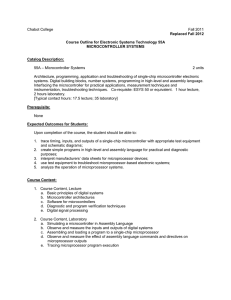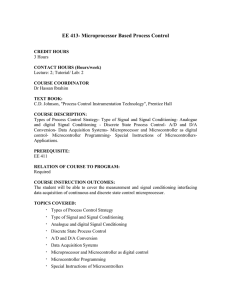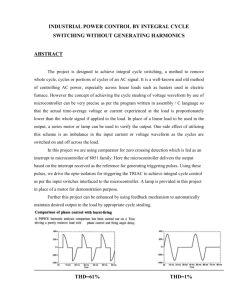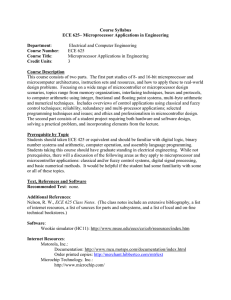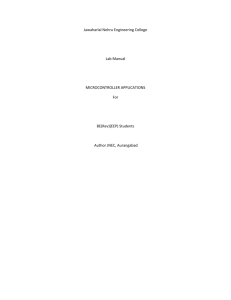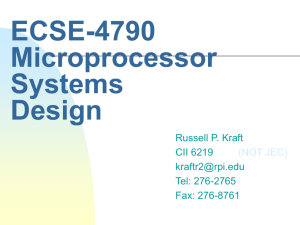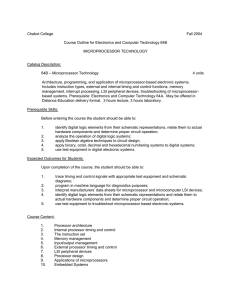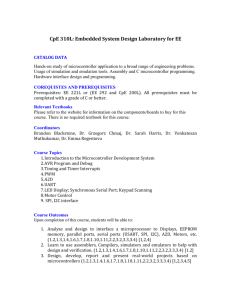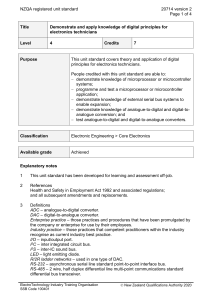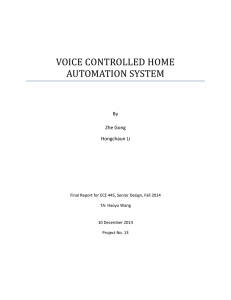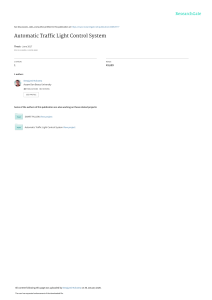Chabot College Fall 2009 Replaced Fall 2011
advertisement
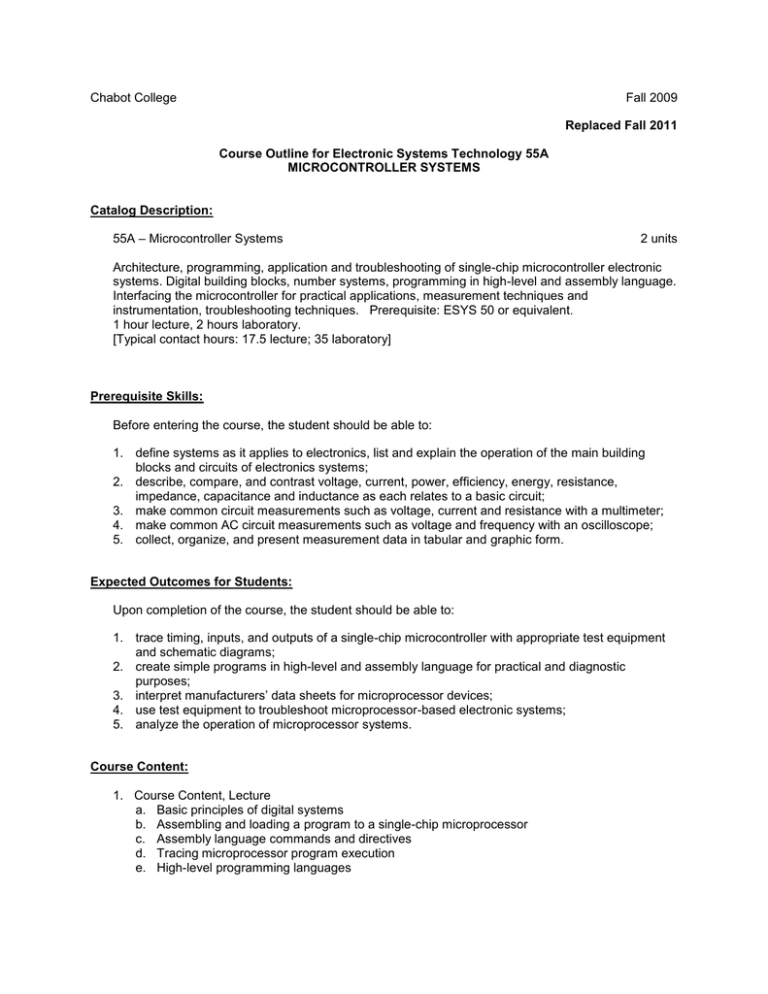
Chabot College Fall 2009 Replaced Fall 2011 Course Outline for Electronic Systems Technology 55A MICROCONTROLLER SYSTEMS Catalog Description: 55A – Microcontroller Systems 2 units Architecture, programming, application and troubleshooting of single-chip microcontroller electronic systems. Digital building blocks, number systems, programming in high-level and assembly language. Interfacing the microcontroller for practical applications, measurement techniques and instrumentation, troubleshooting techniques. Prerequisite: ESYS 50 or equivalent. 1 hour lecture, 2 hours laboratory. [Typical contact hours: 17.5 lecture; 35 laboratory] Prerequisite Skills: Before entering the course, the student should be able to: 1. define systems as it applies to electronics, list and explain the operation of the main building blocks and circuits of electronics systems; 2. describe, compare, and contrast voltage, current, power, efficiency, energy, resistance, impedance, capacitance and inductance as each relates to a basic circuit; 3. make common circuit measurements such as voltage, current and resistance with a multimeter; 4. make common AC circuit measurements such as voltage and frequency with an oscilloscope; 5. collect, organize, and present measurement data in tabular and graphic form. Expected Outcomes for Students: Upon completion of the course, the student should be able to: 1. trace timing, inputs, and outputs of a single-chip microcontroller with appropriate test equipment and schematic diagrams; 2. create simple programs in high-level and assembly language for practical and diagnostic purposes; 3. interpret manufacturers’ data sheets for microprocessor devices; 4. use test equipment to troubleshoot microprocessor-based electronic systems; 5. analyze the operation of microprocessor systems. Course Content: 1. Course Content, Lecture a. Basic principles of digital systems b. Assembling and loading a program to a single-chip microprocessor c. Assembly language commands and directives d. Tracing microprocessor program execution e. High-level programming languages Chabot College Course Outline for Electronic Systems Technology 55A, Page 2 Fall 2009 2. Course Content, Laboratory a. Basic principles of digital systems b. Assembling and loading a program to a single-chip microprocessor c. Assembly language commands and directives d. Tracing microprocessor program execution e. High-level programming languages Methods of Presentation: 1. Online learning objects 2. Small group discussion/lecture 3. Laboratory Assignments and Methods of Evaluating Student Progress: 1. Typical Assignments a. Program a microcontroller with a given program and verify the operation of the system meets specifications. b. Write a high-level program to use a microcontroller as a temperature control system, monitoring a temperature sensor and controlling a fan to maintain a stable temperature. 2. Methods of Evaluating Student Progress a. Homework and laboratory written reports b. Class participation c. Observation and critique of laboratory exercises d. Quizzes, Midterm, and Final Examinations Textbook(s) (Typical): Lessons in Electric Circuits, Vol. 1 & 2, Kuphaldt, open source, hosted on openbookproject.net Special Student Materials: none wap ESYS-55A-outline.doc New: September 2, 2008 Revised: November 20, 2008
